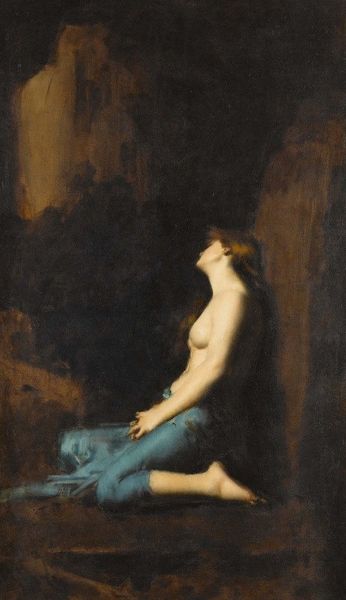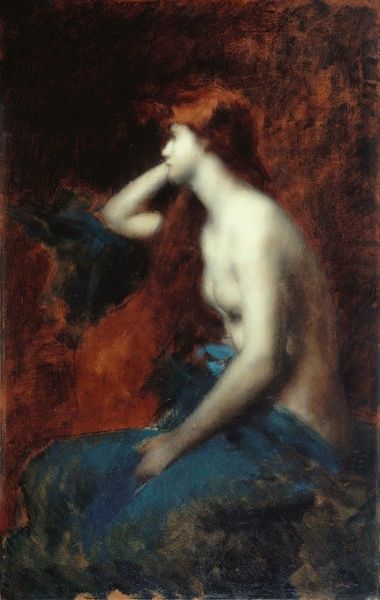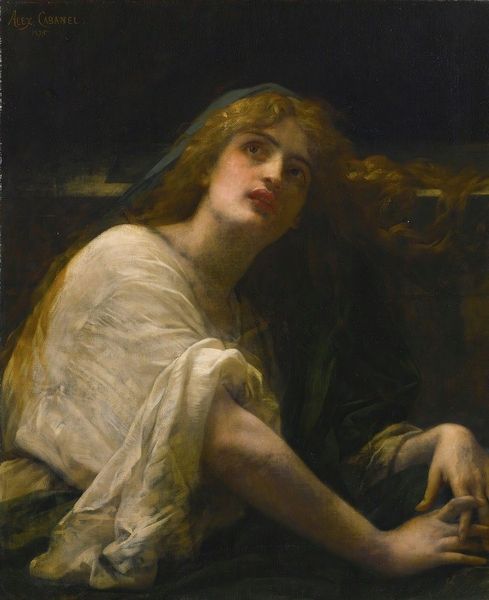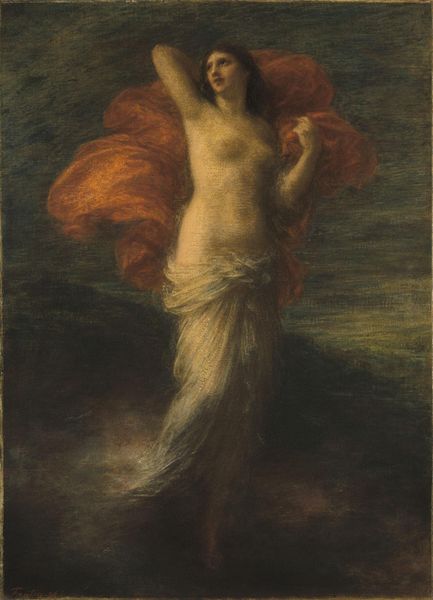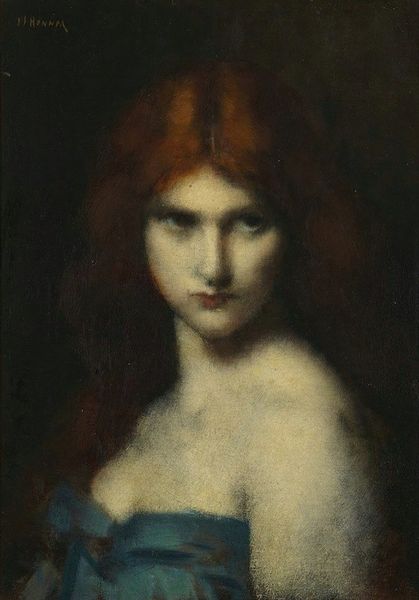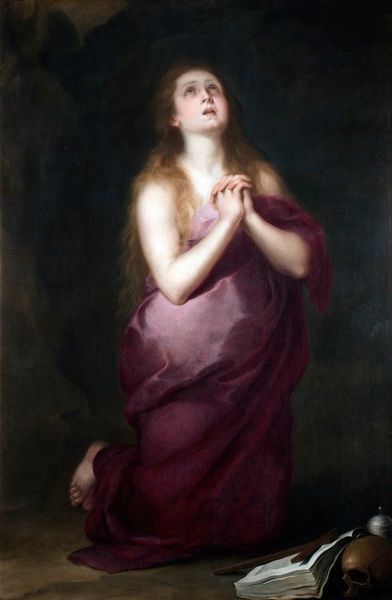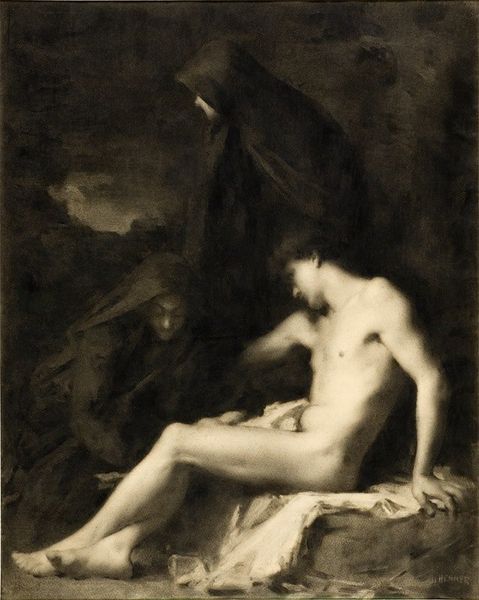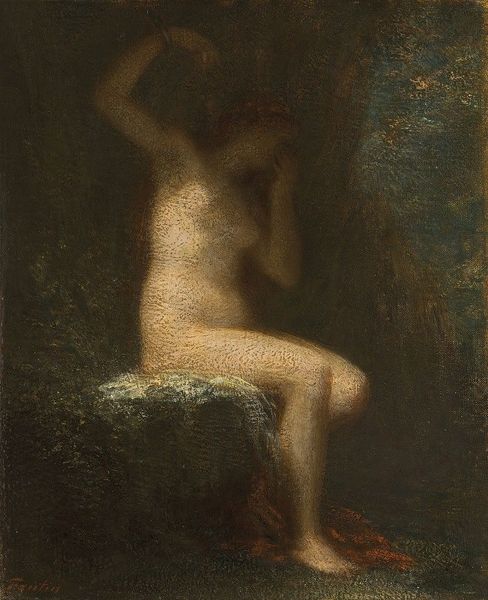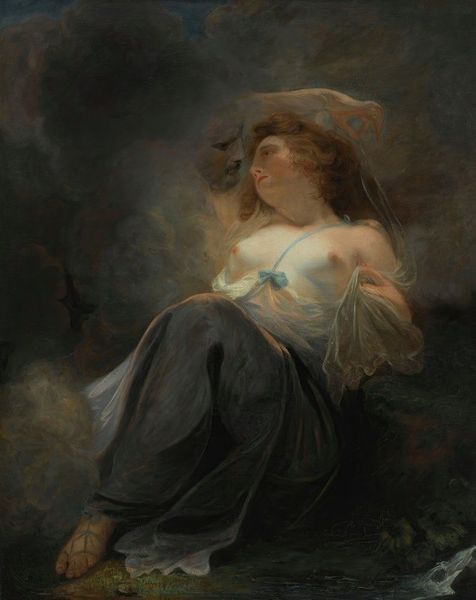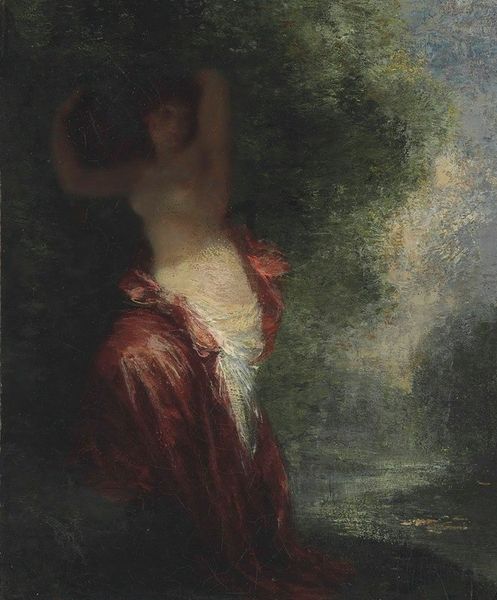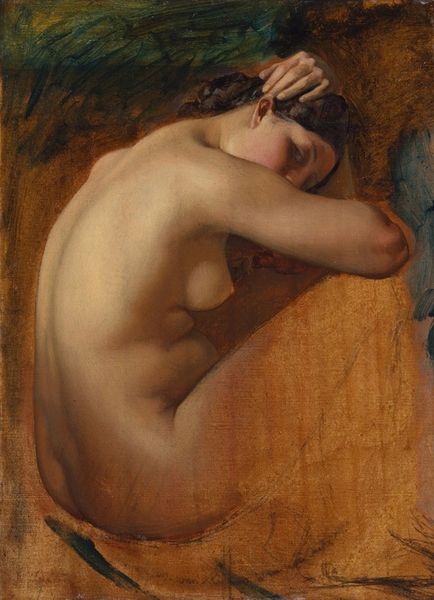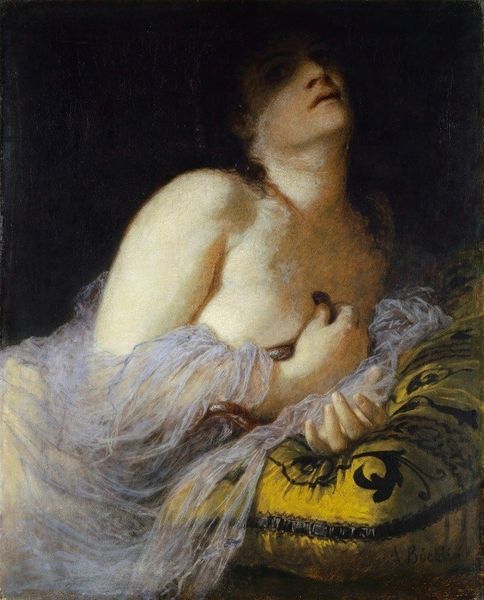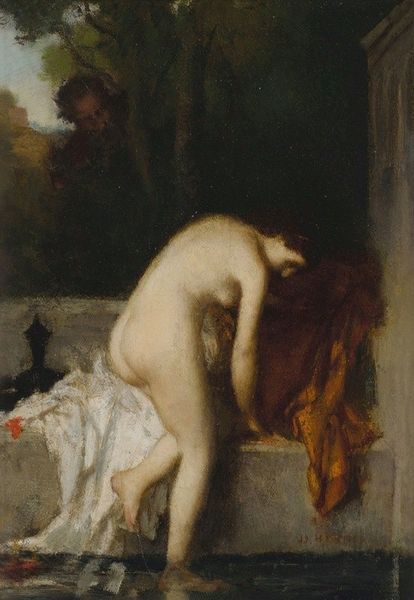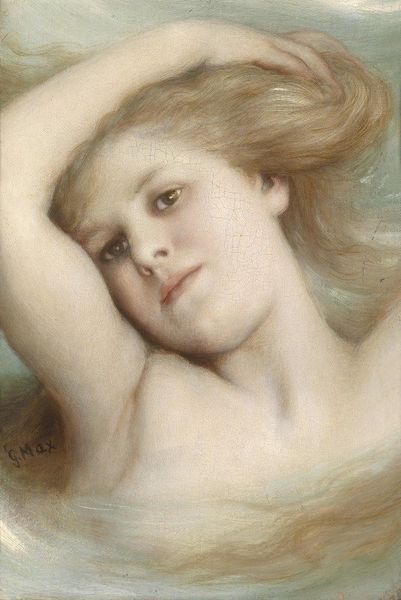
Copyright: Public Domain: Artvee
Curator: Henner's "Mary Magdalene," an oil painting created around 1880, immediately strikes me as a vision of intense longing or perhaps even sorrow. What are your initial thoughts? Editor: My first impression is the almost palpable tension between the figure and the darkness that surrounds her. It’s Romantic, certainly, and staged for maximum emotional effect. The implied narrative grabs your attention. Curator: Precisely! The dark backdrop enhances the almost ethereal glow of Mary Magdalene. The upward gaze directs us to ponder upon hope or supplication. What’s particularly interesting is Henner's depiction, positioning her almost as a timeless figure, stripped bare both literally and figuratively. This romantic style clearly attempts to evoke the emotional states that may be projected onto such a woman of biblical stories. Editor: Indeed, this rendition bypasses traditional iconography. It is an imagining that reflects, more than anything, late 19th-century anxieties and fascinations with female spirituality and sexuality in a changing religious and social landscape. What purpose did showing this level of emotional intensity, or even perceived shame, serve? And, by putting her naked body on display, wasn’t the painter playing to the male gaze, a trope prevalent throughout much of history? Curator: That tension is central to our understanding, I believe. Henner attempts to capture Magdalene's penitence, while simultaneously confronting viewers with a vulnerable, even eroticized image. The gaze and symbolism carry historical weight that, over time, may have different meanings, depending on one’s perspective, regardless of intent. I see a woman both liberated from and confined by cultural perceptions, inviting reflection on forgiveness, redemption, and perhaps patriarchal controls. Editor: I appreciate that perspective. Placing this work within its historical context shows us that artworks aren’t neutral but products of specific cultures with particular points of view. Thank you. Curator: Thank you. Perhaps "Mary Magdalene," prompts us to acknowledge and deconstruct deeply entrenched prejudices and assumptions that persist to the present day.
Comments
No comments
Be the first to comment and join the conversation on the ultimate creative platform.
